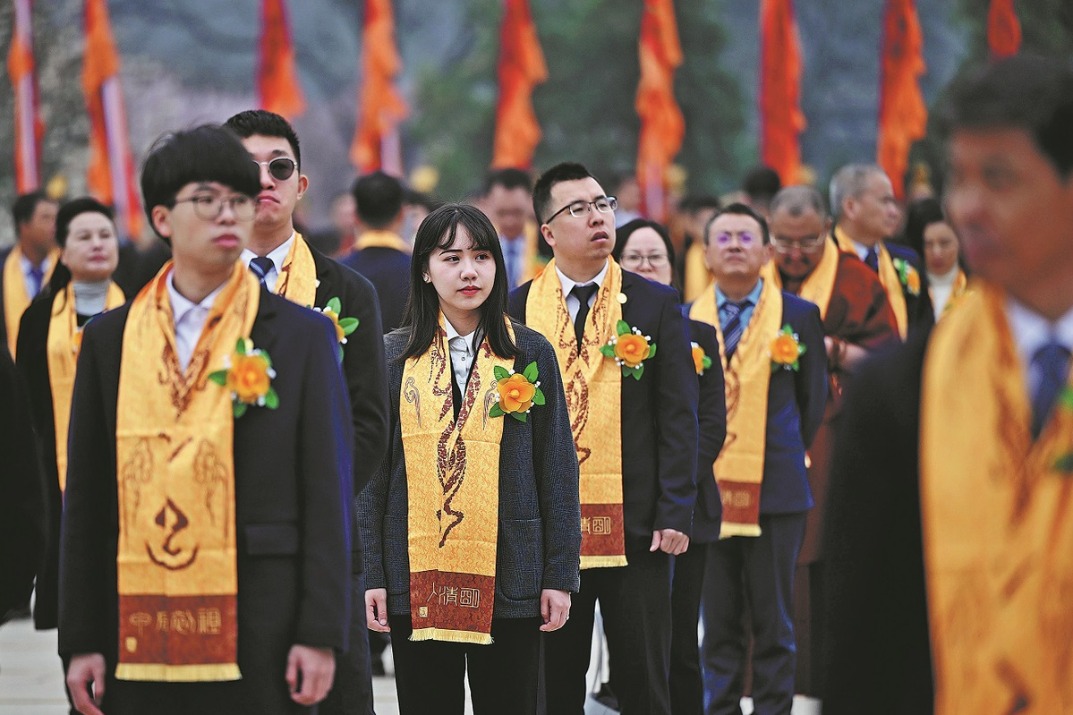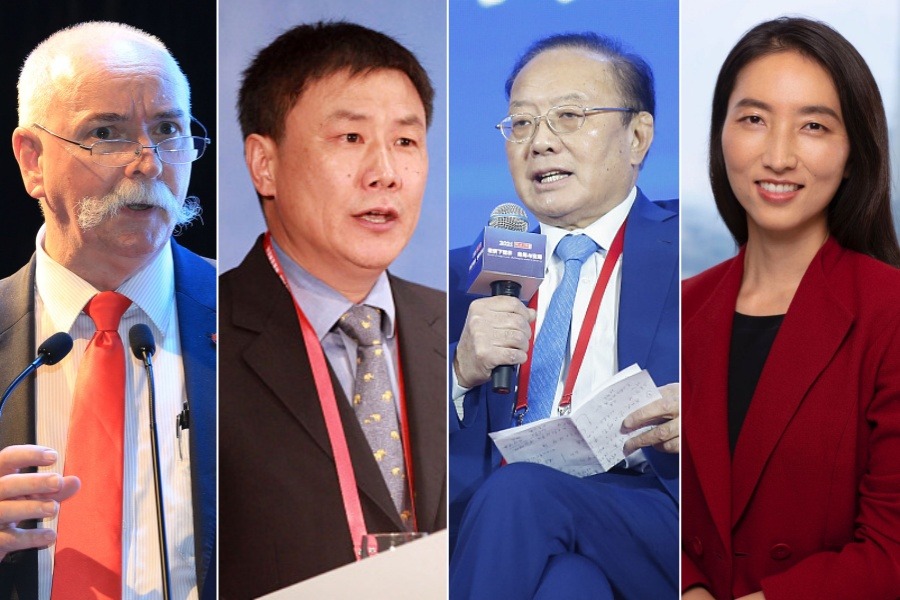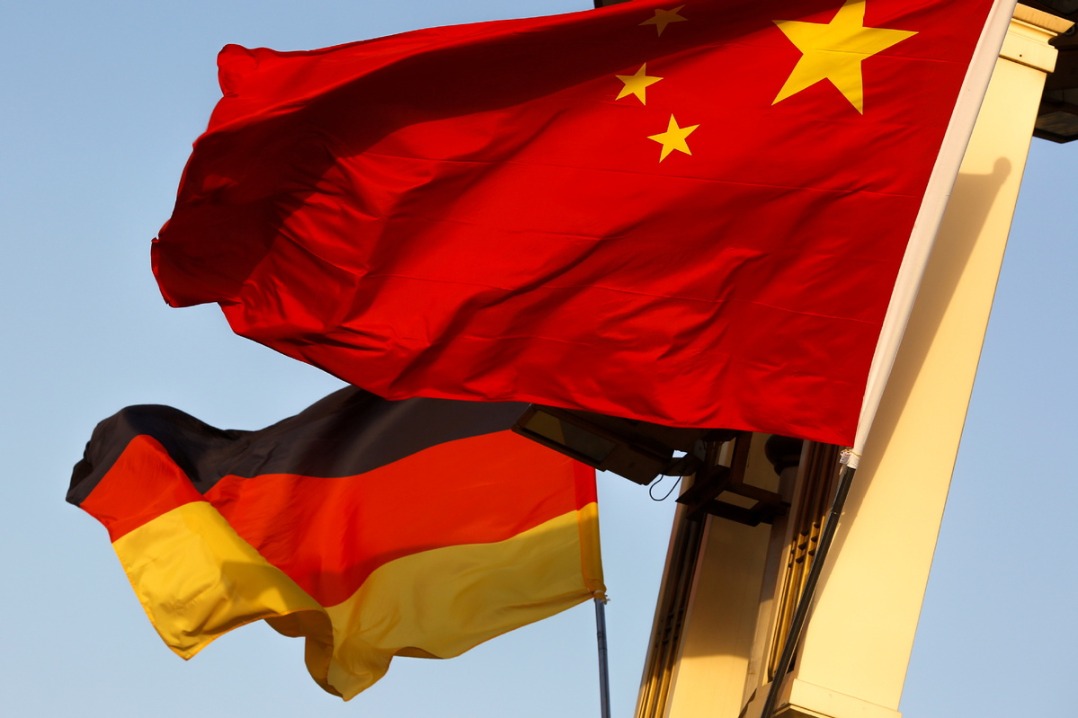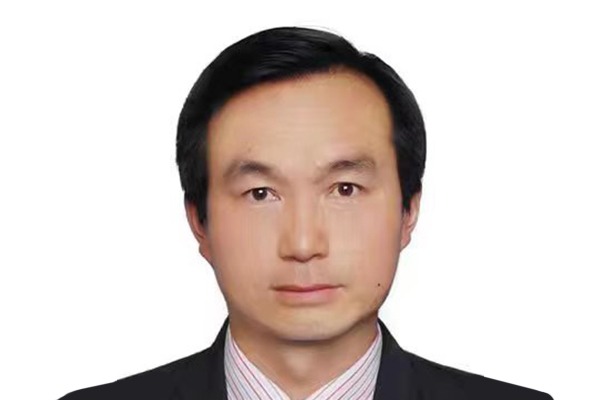Hawking inspired Chinese youngsters

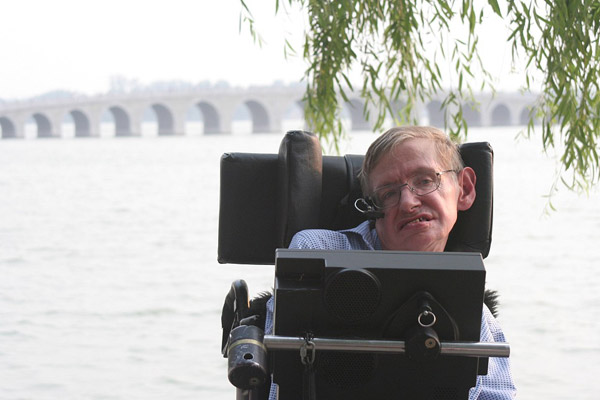
Among the tens of millions of messages posted online for British physicist Stephen Hawking, who died on Wednesday, the one most "liked" is: "The person who knows the most about stars has flown to the stars."
It is also the most retweeted message on domestic social media.
Many people have expressed their respect for and condoled the death of arguably the most important theoretical physicist since Albert Einstein. And media outlets have published his obituary and innumerable reports on his achievements.
Yet some critics say the most "liked" sentence is wrong, arguing that Hawking was a great "popular science" writer rather than a great physicist. Some have even criticized the British scientist, saying Hawking's fame is a result of the media playing up his disability factor rather than his true achievements.
True, Hawking is known most for two of his books, The Universe in a Nutshell and A Brief History of Time. In fact, A Brief History of Time had sold more than 25 million copies globally by 2014, making it one of the most popular science books ever. It has even been translated into more than 40 languages and read by people across the world.
Hawking may not be the most important theoretical physicist since Einstein, but his achievements in physics prove he is definitely one of the most important. He collaborated with renowned mathematician Roger Penrose on gravitational singularity theorems in the framework of general relativity, which helped fill a gap in Einstein's general relativity theory.
More importantly, he arrived at the conclusion, in theory, that black holes emit thermal radiation, which is ultimately evaporated leaving no information except on the temperature. This leads to a loss of all the information that was contained in the black hole, which is a violation of quantum mechanics, and known as the information paradox, or simply Hawking paradox.
These achievements are enough to make him a great theoretical physicist and worthy of the honor bestowed on him by the people, including physicists. To quote Sheldon Cooper, a character in the US TV series The Big Bang Theory: "Professor Hawking, you are a gift to mankind."
And his critics must realize that a person can be both-a great physicist and a great popular science writer, and Hawking was one. In some sense, only a physicist who has mastered his subject and, at the same time, has a gifted sense of humor and can connect with his readers and audiences may be able to excel at popular science.
Besides writing popular science books, Hawking also gave innumerable public talks on science, and reports say he even attended the talks given by other professors at Cambridge University. Considering that he could talk only through the computer on his armchair, he deserves the highest praise.
Hawking made three visits to China, in 1985, 2002 and 2006. Even last November, about four months before his death, he delivered a video speech on Tencent WE conference.
To many, Hawking's popular science writing, along with his achievements in physics, has propelled science forward. When he opened a real-name account on Chinese social media micro blog on April 12, 2016, 2 million users followed him within two days, many of whom, still students, expressed their interest in scientific research. The most popular pop-science website in China is even named after his book The Universe in a Nutshell.
His works are a sound source of future scientific research in China. The country has 96.92 million primary school students, and the more they are attracted to the mysteries and charms of science at a young age, because of popular science works, the higher the number of researchers there will be in the future.
However, popular science books by one foreign physicist alone cannot be enough to make them interested in science. Data show that in 2015, for every 10,000 Chinese citizens, there were only 15 popular science "service providers", of whom only about one-tenth were professionals. The latter two figures are lower than those in developed countries.
If more Chinese scientists spend more time writing popular science books and giving talks at the gatherings of youths, the situation could change for the better. The question is: Are our scientists ready to take up the challenge?
The author is a writer with China Daily.
zhangzhouxiang@chinadaily.com.cn



















